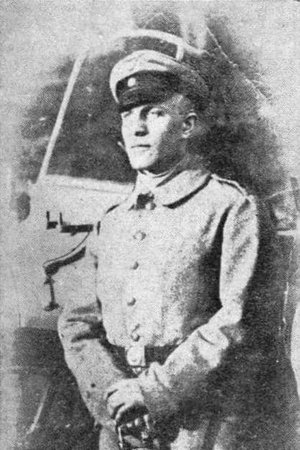Dimitris Gaziadis
Birthplace:
Athens, Greece
Dimitrios Gaziadis (1899-1959), according to other sources 1897-1961 or 1896-1960, was a Greek cinematographer, one of the first directors of Greek cinema and the founder of the film company "Dag Film" together with his brothers, Michalis and Kostas. He was the first cinematographer who officially undertook to animate the rear areas during the war.[6] He was originally from Constantinople. He studied photography in Germany and for many years was a professor at the Imperial Film Academy in Munich and at the same time worked as a military cameraman in Berlin, where he was the founder of the film company "Dolik Film", even before "Emelka" and "Ufa" appeared. In World War I, Dimitrios Gaziadis, as an officer, had assumed the direction of the film service of the German army. A consequence of his great activity was that in 1919 he attracted the attention of the Greek government, which summoned him and assigned him to film scenes from the operations of the Asia Minor campaign. Indeed, Dimitris Gaziadis, responding to this invitation, returned to Germany and after purchasing the required machines and materials, returned and, passing through Asia Minor, shot several films from the front, including the Battle of Sangario. Thus he created his first film The Greek Miracle (1921) with scenes he had taken from nature in Smyrna. In the meantime, in 1920, together with his brothers Kostas (a cameraman who had returned from America where he had systematically followed the development of cinema) and Michalis, he founded the first film production company in Athens, which bore the name "Dag Film" ("Dag Film" Co S.A. Gaziadis Bros.), where until 1930 he directed the first notable Greek films of the so-called silent cinema: Prometheus Bound (a simple filming of the homonymous performance by the Sikelianos couple at the Delphic Festival), Eros and the Waves (1928), The Port of Tears (1928), Aster (1929), The Wind (1930), The Aphachides of Athens (1930), Love Me Maritsa (1930) and Out of Poverty. (1932). However, after the advent of talking cinema, Dag Film was unable to cope with the competition from foreign films and consequently disbanded.





